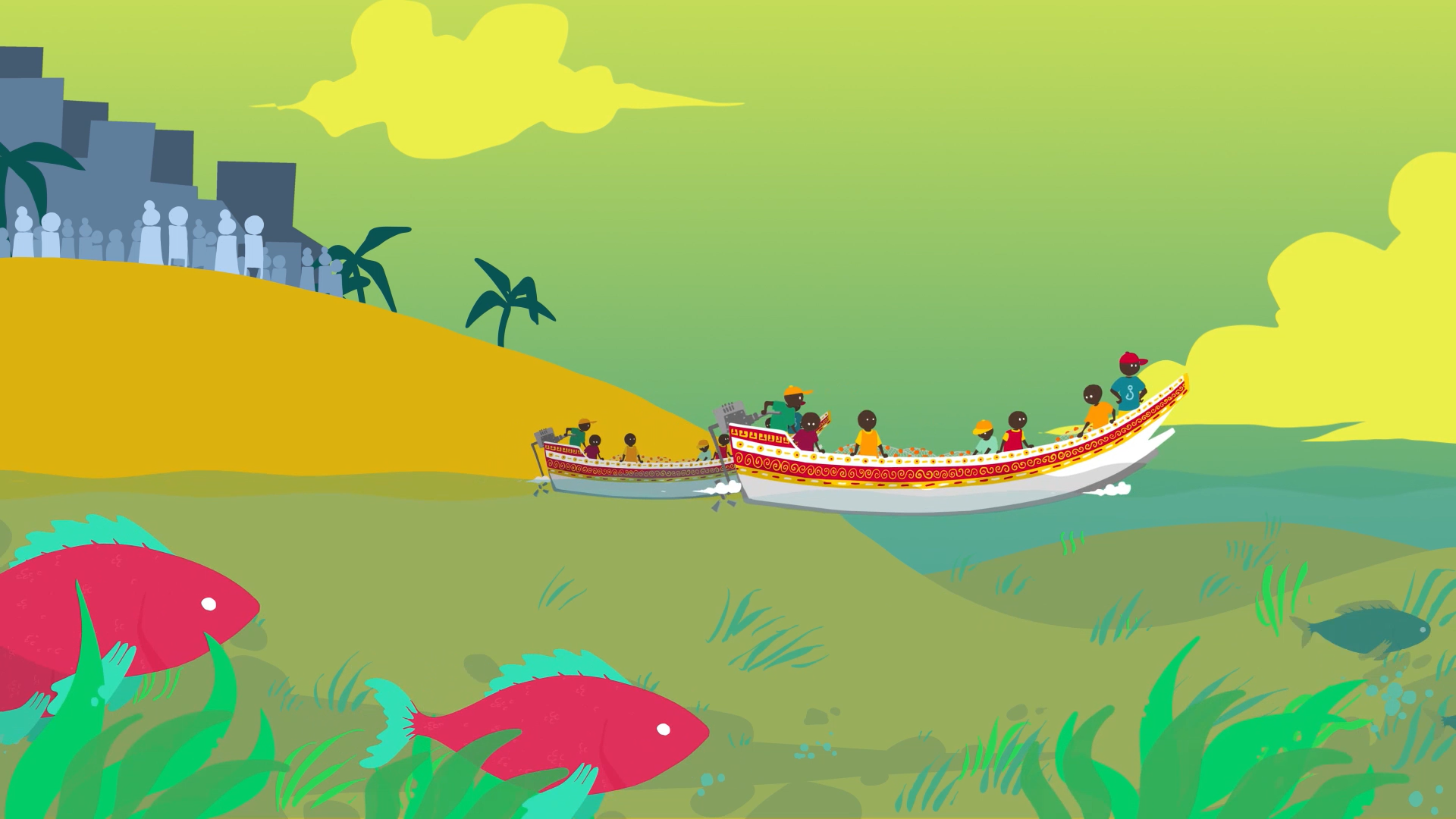A first in the history of the FAO Committee on Fisheries (COFI), its members gathered online for its 34th session to discuss global fisheries issues such as fish trade, aquaculture or how to support small-scale fisheries. According to the draft report, 96 members of the committee, 11 observers from other FAO Member Nations as well as 39 intergovernmental organisations and 32 NGOs attended this session, including CFFA and our partners the African Confederation of Artisanal Professional Fisheries Organisations (CAOPA), Bread for the World and the Swedish Society for Nature Conservation (SSNC).
This 34th edition gave much space to small-scale fisheries (SSF), with a dedicated item, but also several mentions throughout the conference, including the commitment of members to celebrate the International Year of Artisanal Fisheries and Aquaculture (IYAFA) in 2022 “to increase awareness and understanding of this sector for the social and economic development of coastal communities and the provision of food of high nutritional value, sustainable use of natural resources […]”.
The Covid-19 crisis and its impacts on fisheries were the elephant in the room, and while some NGOs regretted that there was no dedicated point on the pandemic, it was mentioned in several items of the agenda. The Algerian representative, for example, asked that artisanal fishermen and women affected by the Covid-19 be supported as “a global crisis requires a global response for fisheries activities”.
As an observer, CAOPA sent three written statements to COFI. Regarding Covid-19, CAOPA believes the crisis is an opportunity to respond to the long-standing challenges in African artisanal fisheries, in particular to improve the living and working conditions of men and women in the sector. This organisation also expressed the worry that many governments will seek to recover from the pandemic through the promotion of a Blue Economy that focuses on other ocean sectors which directly compete with artisanal fisheries. The European Union echoed this concern in its statement on item 8 ‘Support to small-scale fisheries’ called the attention to the potential impacts of the development of competing extracting activities and other uses of the sea on SSF communities. This was then reflected in the report, in which the Committee “requested increased work in relation to support for small-scale and artisanal fisheries with […] fair access to fishing rights, considering potential impacts of competing sectors and activities.”
Regarding fish trade, the Committee “reiterated the importance of having small-scale actors effectively participating in international trade, including by encouraging more opportunities and market access for small-scale and artisanal fisheries and aquaculture” and asked FAO to continue the work of developing a non-binding guidance on social responsibility for the fisheries value chain. For CAOPA, however, in that context a specific document which would cover the entire artisanal fisheries value chain is needed, building on existing international instruments, such as the FAO SSF Voluntary Guidelines and the ILO Convention C188 on Work in the Fishing Sector.
Several members called for more transparency to effectively fight Illegal, Unreported and Unregulated (IUU) fishing, including Senegal, speaking on behalf of the African region members, and the European Union. Senegal acknowledged the shortcomings in the fight against IUU in Africa and noted that more information is needed regarding the presence of fishing vessels in African waters. The EU called for transparency throughout seafood supply chains. These statements converged with our joint statement with CAOPA in which we demand more transparency in the allocation access as “not all legal fishing is sustainable”.
The Committee also discussed the development of sustainable aquaculture voluntary guidelines. CAOPA highlighted in its statement that the development of such guidelines must take into account the environmental and social impacts of installations on coastal communities and the coastal environment and throughout the value chain. The organisation stressed concern regarding the booming fishmeal industry in West Africa. The European Union also expressed the need to “avoid that the increasing global demand for fishmeal and fish oil as ingredients for feed for aquaculture deprives poor populations from access to nutritious food”.
Finally, the Committee also underscored the “climate vulnerability of small-scale and artisanal fisheries” communities and asked FAO to work on technical guidance for climate adaptation and mitigation. When talking of biodiversity conservation, CFFA and our partners SSNC recalled in a statement that Indigenous Peoples and Local Communities (IPLC) participation is crucial and that marine and coastal areas that are already managed and protected by IPLCs should be formally recognized in biodiversity initiatives monitoring, evaluation and reporting mechanisms.











Climate change is transforming the environmental and social landscapes of African coasts. While small-scale fishing communities are suffering first hand the impacts of climate change, they are also developing community-led and nature-based solutions to adapt and become resilient. In this article, the author goes through some examples and gives recommendations on how the EU can support these initiatives.